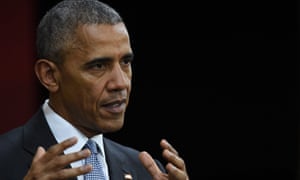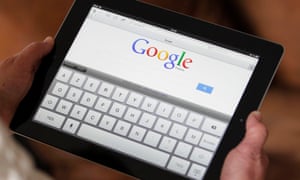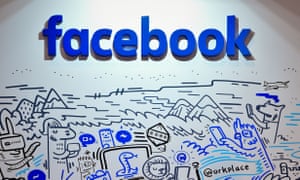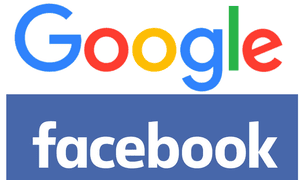A Marxist perspective would argue that the so-called “information revolution” has done little to benefit audiences or to subvert the established power structures in society. Far from being a “great leveller” (Krotoski, 2012) as many have claimed, it has merely helped to reinforce the status quo by promoting dominant ideologies. The most popular news website in the UK by a considerable margin is the ‘Mail Online’, which receives more than 8 million hits every month and is continuing to expand rapidly – with forecasts that it will make £100 million or more in digital revenues in the next three years. Similar to its tabloid print edition, the website takes a Conservative, right-wing perspective on key issues around gender, sexuality and race and audiences appear to passively accept what the Marxist theorist, Gramsci, called a hegemonic view. When one of their chief columnists, Jan Moir, wrote a homophobic article about the death of Stephen Gately in 2009 there were Twitter and Facebook protests but, ultimately, they did not change the editorial direction of the gatekeepers controlling the newspaper.
On the other hand, a pluralist would argue that the audience has got more power in terms of consumption and product, with the development in new/digital media. One of the many examples for this case would be the use of citizen journalism and bloggers. Nowadays, the audience have got the power of making their own news and headlines as long as they have something to back themselves up, e.g. a camera and a social media account. An example of this was the Ian Tomlinson murder case, where the police had made a statement but didn't realise that someone had the recorded footage, which was completely different too what the police officers said. Therefore, in this case, audiences have the power to show in someone is telling the truth or not; this case being the police officers. It can be useful as it can also save many lives and make the government etc more aware of people, such as the police officers.
However, a Marxist perspective would again argue that this is a way of 'dumbing down' the media. Nowadays, the audience have the access of generating mass media and can view whatever they like when they want to. But from a Marxist perspective, the media is generating them by feeding them different beliefs. This means that the audience will then start to agree with the things they can see on the internet and therefore believe it even when sometimes the information given to them can be very misleading at time, which is another reason why the media is a way of the audience 'dumbed down'; they are slowly becoming more and more gullible and since they are using the new/digital media mainly everyday, this is becoming a routine where they may be checking inaccurate information when they think it's reliable and look at it ever day.
But from a Pluralist perspective, they would believe that the audience have got a great flexibility in terms of the things they can access over the internet. Audience have got the power to manipulate the other audiences with the content they may post online. This will allow them to "conform, accommodate or reject" (Gurevich) with the different things they may be feeding to the media and therefore, suggests that they have more power and are also enabling the concept for the audience having the 'freedom' of doing whatever they want to do online, whether it's being a citizen journalist or wanting to become a blogger.
Moreover, a Marxist may again believe that the internet revolution has done much to benefit the audience. Simply, with the fact that a lot of the information online is misleading, the audience are starting to become hypnotizing with what they are researching and are believing it. A recent example of misleading information would be 'Fake News' which is going on around social media sites such as Facebook and Google. Researchers believe that with the Fake News, this has been a key reason on why recent event have happened, e.g. the UK leaving the European Union and Donald Trump becoming President. However, what the media doesn't know is that this fake news has been published by the audience. Therefore, showing that "web pages and blogs are like a million monkeys typing nonsense" (Andrew Keen). This means that all the unprofessional journalists or bloggers are typing things that are very misleading and are a main cause on why Fake News had happened.
On the other hand, from a pluralist perspective, they can talk about how social media sites are given the benefits of censorship etc. Social media sites such as Instagram, Facebook, Twitter etc, have given the benefit of allowing the audience to have the power of their social media sites and having the option on who and who not to allow to see their profiles. This is beneficial to the audience since they are shown to be more powerful as they will have this access. Some people such as Marxists may believe that this is a way of drip feeding their audience (being their helping hand) but I believe that this is a way of giving the audience their privacy etc.
In conclusion, I believe that I would argue this topic from a Marxists point of view. In my opinion, I do think that a lot of the time, the audience themselves have been spoon-fed in terms of the things that they have been given to themselves, especially with the last point mentioned with the censorship on social media sites. I believe that if you have posted something, everyone should be eligible to see and shouldn't hide the content.
But from a Pluralist perspective, they would believe that the audience have got a great flexibility in terms of the things they can access over the internet. Audience have got the power to manipulate the other audiences with the content they may post online. This will allow them to "conform, accommodate or reject" (Gurevich) with the different things they may be feeding to the media and therefore, suggests that they have more power and are also enabling the concept for the audience having the 'freedom' of doing whatever they want to do online, whether it's being a citizen journalist or wanting to become a blogger.
Moreover, a Marxist may again believe that the internet revolution has done much to benefit the audience. Simply, with the fact that a lot of the information online is misleading, the audience are starting to become hypnotizing with what they are researching and are believing it. A recent example of misleading information would be 'Fake News' which is going on around social media sites such as Facebook and Google. Researchers believe that with the Fake News, this has been a key reason on why recent event have happened, e.g. the UK leaving the European Union and Donald Trump becoming President. However, what the media doesn't know is that this fake news has been published by the audience. Therefore, showing that "web pages and blogs are like a million monkeys typing nonsense" (Andrew Keen). This means that all the unprofessional journalists or bloggers are typing things that are very misleading and are a main cause on why Fake News had happened.
On the other hand, from a pluralist perspective, they can talk about how social media sites are given the benefits of censorship etc. Social media sites such as Instagram, Facebook, Twitter etc, have given the benefit of allowing the audience to have the power of their social media sites and having the option on who and who not to allow to see their profiles. This is beneficial to the audience since they are shown to be more powerful as they will have this access. Some people such as Marxists may believe that this is a way of drip feeding their audience (being their helping hand) but I believe that this is a way of giving the audience their privacy etc.
In conclusion, I believe that I would argue this topic from a Marxists point of view. In my opinion, I do think that a lot of the time, the audience themselves have been spoon-fed in terms of the things that they have been given to themselves, especially with the last point mentioned with the censorship on social media sites. I believe that if you have posted something, everyone should be eligible to see and shouldn't hide the content.









